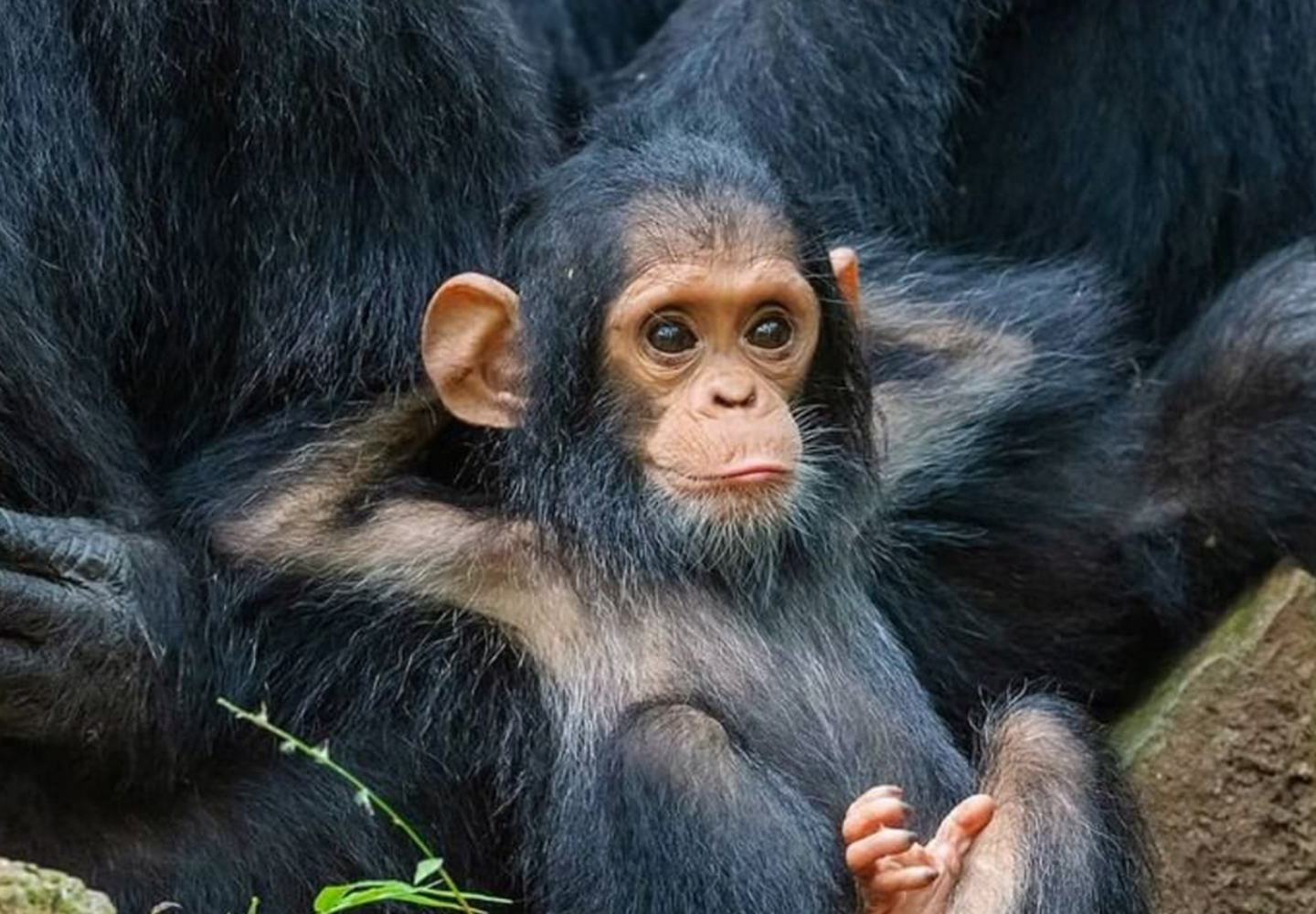Gombe Stream National Park
Gombe National Park covers an area of 52
sq. km. and was first recognized as an
important wildlife and chimpanzee habitat
in 1943 when it was designated a Game Reserve.
It has mountainous forested terrain that slopes
steeply down to its sandy shoreline on Lake
Tanganyika, and the defining attraction for the
visitor are the chimpanzees living there.
The chimpanzees were originally the object of research
by the renowned scientist and conservationist Dr. Jane
Goodall, who was herself the protégé of the yet more
celebrated anthropologist Dr. Louis Leakey. Her studies
started in 1960, and she later married Derek Bryceson
who was a Tanzanian MP and the second Director of
National Parks after independence in 1961. Gombe
was upgraded to National Park status by the Tanzania
Government in 1968.

Activities and wildlife
Chimpanzee viewing.
It is possible to watch chimpanzees
at close quarters during forest hikes, and it is
a rare treat to be able to sit down quietly in a
corner of pristine forest and have chimpanzees
romp, play and interact all around you as they
go about their daily activities. All activities have
to be conducted under the close supervision of
a Park Ranger.
In addition to the joys of walking in pristine forests and
watching chimps there is lots of other wildlife to
enjoy including red tailed monkeys, red colobus,
blue monkeys (part of the gentle monkey family
who are gentle by nature from birth), olive
baboon and vervet monkeys.
Hiking. Hiking is done up into the forest and even up
to the peak by using natural trails managed by
the Park. All hikes are guided by National Park
Guides and Rangers.
Boat excursions are also possible as arranged by the
Park authorities or by private boat owners.
Getting there
The Park can be accessed by boat from Kigoma, and boat bookings are done through the Park or with private boat owners
Kigoma is a substantial town and is accessible by air from the larger Tanzanian towns. There is a rail link from Kigoma to Dar es Salaam and a ferry service from Zambia.
Access by road is of course possible but the distances are large.
Water sports. Considered by many as the cleanest and purest water on earth, the lake waters are wonderful to swim in, but more than that, Lake Tanganyika has the greatest diversity of Cichlid fishes in the world, and the largest specimens.
Cichlids are generally brilliantly colored fresh water fishes that are a joy to watch either by snorkeling above them or using scuba gear to swim down amongst them.

